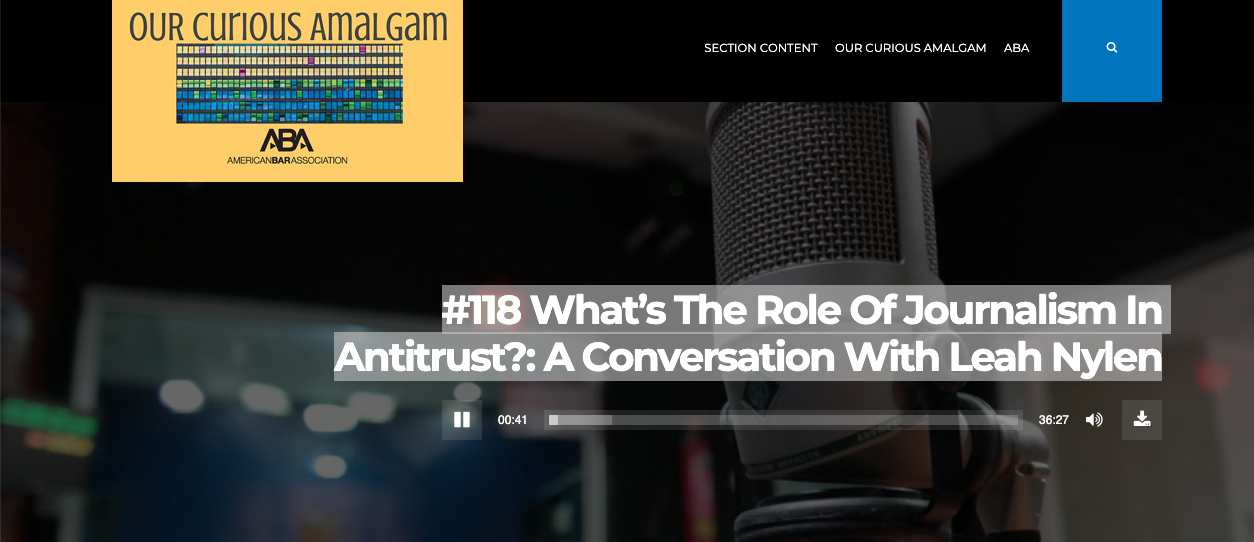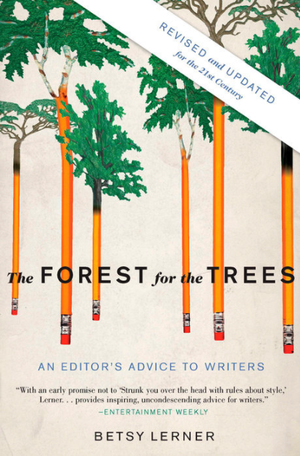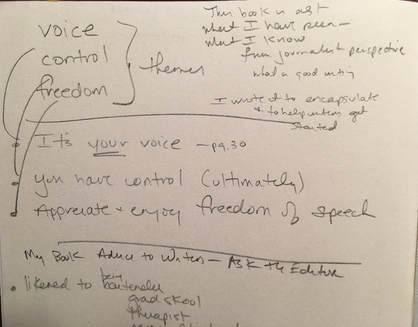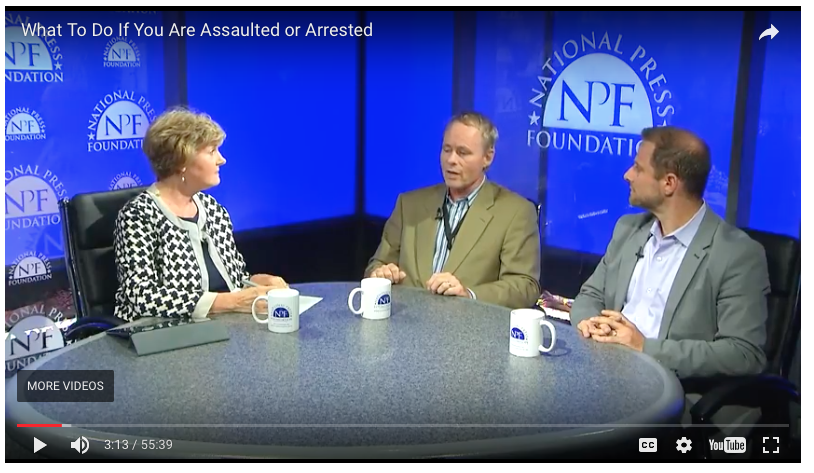
Episode 118: What’s the Role of Journalism in Antitrust?: A Conversation with Leah Nylen
Runtime:
36:27
Episode post date:
June 7, 2021
Why I enjoyed it:
As a journalist, I loved hearing about Leah Nylen's journey into the profession. Nylen, a seasoned reporter, recounts how the film "All the President's Men" influenced her as a youngster. (It has to do with meeting mysterious sources in parking garages.)
Guest:
Leah Nylen, a reporter with @politico who covers #antitrust. She talks about cultivating sources and writing in plain English for her audiences.
Hosts:
John Roberti of Allen & Overy LLP teams with Anora Wang of Davis Wright Tremaine LLP.
Link to episode:
https://bit.ly/3puVGdr
Jennifer's tidbit:
Be sure to listen all the way through to hear their lighthearted discussion regarding tattoos.
Hashtags to follow:
@leah_nylen
@JohnRoberti1
@AnoraWang
#dwtAntitrust
@DWTLaw
@abaantitrust
Brief rundown, in order, of some of the topics they explore:
*Tips for lawyers speaking to journalists including the difference between "off the record" and "on the record." What does speaking "on background" mean?
*What is PACER? https://lnkd.in/dUtbx7h
*Do journalist’s have an agenda, and are journalist’s neutral?
*Who was Ida Tarbell and why is she important to journalism?
*Who is Lina Khan?
*Most important thing Leah has learned from covering antitrust
*Tips for lawyers who want to be quoted by journalists.
*Redacting tattoos
*Ideas for an anti-trust tattoo :-)
###








 RSS Feed
RSS Feed